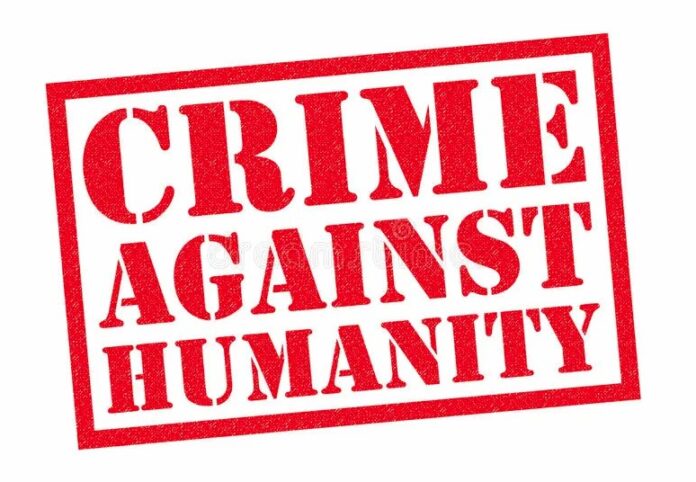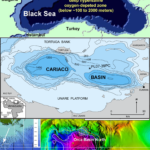With the recent election in Australia, the newly installed government has chosen to reveal the every-five-year report on the environment that its predecessor appears to have kept under wraps. The prior-led Scott Morrison government received the report in December 2021. But its content was not shared with the public at the time or at any time up until the election.
The last report issued was in 2016. The difference between its conclusions then and the latest shows the extent of damage climate change is doing to Australia now. The 2016 report had talked about future impacts, but this 2021 report states unequivocally that climate change is no longer on the horizon, but happening now and having a profound impact on Australians and their natural environment.
The report outlines the rate of current environmental degradation and the potential for severe societal disruptions.
Among its findings are the following:
- the general environment is deteriorating from atmospheric warming with the following results:
- Warming is continuing unabated, largely driven by increasing concentrations of greenhouse gasses (GHG) in the atmosphere. with emissions already incurred driving changes in the coming decades regardless of new efforts and initiatives to mitigate future emissions. This is expected to have a major impact on Australians and the environment throughout the second half of the 21st century.
- Land and ocean temperatures are continuing to increase. The mean temperature has risen 1.4 Celsius since the beginning of the 20th century. Ocean temperatures have risen 1.1 Celsius since the 1950s. The frequency of extreme heat waves is expected to increase.
- Rainfall is declining in the southern half of the continent while increasing in the north. Droughts are becoming widespread. Periods of extreme fire weather are becoming more common. Extreme rainfall events are occurring more often as well.
- Climate change is already and will continue to impact the environment and human society. Habitats, ecosystems and biodiversity, water systems and resources, industry, crops and agriculture, urban, rural and coastal communities are being negatively impacted. The hardest hit are Australia’s Indigenous peoples.
- The challenges to effective adaptation are formidable because of the lack of public and private sector action to address climate risk.
The report notes that:
- Non-native plant species now outnumber native ones in the country.
- The number of endangered species has grown by 8% since the 2016 report and the country has lost more native mammal species than any other continent.
- Coastal salt marshes that are both species preserves, as well as barriers to sea-level rise, continue to vanish.
- Mature forests continue to be cleared with more than 6.1 million hectares gone since 1990.
- Managed retreat from coastal communities is a likely future reality for a significant percentage of the population.
The environmental report card by area reads as follows:
- On climate – the rating is poor and deteriorating.
- For extreme events – poor and deteriorating.
- On land and soil – poor and deteriorating.
- On inland water quality and quantity – poor and deteriorating.
- On coasts – poor and deteriorating.
- On marine environments – good but deteriorating.
- On air quality – very good but deteriorating.
- For urban environments – good and neutral.
The new government in issuing the report is going to score political points over its predecessor. But in the report’s disclosure, the new government is prioritizing climate change.
Isn’t there more to be done, however, to hold the previous Australian government to account? Suppressing a report that has a vital impact on the health of Australians and the environment in which they live would seem to be a dereliction of duty. Is it not the equivalent of failing to disclose a pandemic threat, war, tsunamis, or extreme weather events like typhoons? Isn’t it as derelict as not reporting food and water contamination, or material and construction deficiencies that lead to a building collapse?
When a government fails its citizens in a democracy, a vote can turf it from office. But considering election cycles of two and four years such as in the United States, the waiting time to remedy the problem can further exacerbate it.
Ignoring Climate Change is a Crime Against Humanity
When you consider a government’s primary responsibility is to ensure public safety, the lack of disclosure about the state of Australia’s environment is criminal. Although the reason for this dereliction of duty is obvious, politics, that is not justifiable when considering a government’s primary purpose.
Is there a body to appeal to when a government fails its primary responsibility? The International Criminal Court (ICC) in The Hague, Netherlands, has been established to try cases deemed to be crimes against humanity. Although not recognized by all countries it is seen as a primary arbiter of collective justice. In recent days it has made environmental degradation a crime considering cases involving indigenous land grabs by governments and companies, illegal logging and deforestation, the illegal exploitation of natural resources, and the damaging of the natural environment.
Australia is among the 139 countries that recognize the court’s jurisdiction having passed the International Criminal Court Act in 2002. Since then the country has been scrutinized for its immigration and asylum seeker policies which petitioners to the ICC have requested the court consider. And although the ICC has condemned Australia’s treatment of people fleeing war, disease, and economic hardship to come to the country as asylum seekers, it has declined as of this date to hear a case.
Here’s a scenario to consider. Australia’s Climate Council has been a prominent voice in the country in exposing the previous government’s destructive environmental and climate change policies. What if it were to petition the ICC to consider the environmental dereliction of duty of the previous government as a crime against humanity? Would the court be willing to hear the case? Such an action could establish a legal precedent among ICC signatory countries and be a wake-up call to all, even non-signatories like Russia, the United States, and China.
It’s time to hold governments to account and make climate change a paramount public safety issue.
















